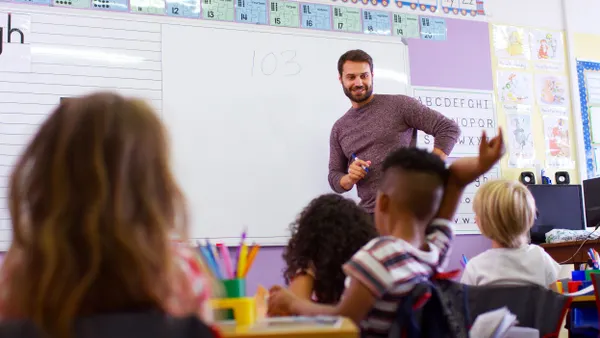Dive Brief:
-
Florida is the latest — and largest — state to require students to complete a financial literacy course before they graduate, CNBC reports. The requirement will start with students who begin 9th grade in the 2023-24 school year.
-
Many other states emphasize the need for personal finance in their curricula by allowing students to substitute a financial literacy course for a math class. To date, 54 financial literacy bills have been introduced in 26 states, according to Next Gen Personal Finance.
-
High school is typically the grade level at which these courses are taught, but some states, like Tennessee, are looking at adding them for middle school and even younger students.
Dive Insight:
States like Florida are putting more resources into personal finance curricula for students, as are schools and districts. There is growing recognition that pupils need this kind of education to manage the financial responsibilities they’ll face in adulthood, from applying for student loans to balancing a checkbook.
Financial literacy programs may also help reduce the nation's persistent racial wealth gap, according to an op-ed by Demi Ross, vice president of admissions operations & finances at Teach For America, and Charles Walker, a board member with 100 Black Men of America, one of the nation’s top African American-led mentoring organizations. Teaching students to manage their finances and locate resources for investing financially in their future may increase equity for all students.
Schools looking for ways to strengthen their financial literacy curricula can also turn to outside organizations. State councils, such as the Florida Council on Economic Education, have offered professional development to educators who can then bring that training into the classroom. Nationally, Next Gen Personal Finance works with schools across the country for free. Corporations like Fidelity and TD Ameritrade also offer resources.
For schools and educators with previous training, a refresh that includes popular digital financial tools like Venmo and PayPal, may also be helpful. In an increasingly cashless world, the same lessons apply, from knowing how to apply for credit to understanding compound interest. But learning how to weave these topics with 21st century skills and platforms may help to better engage students.











